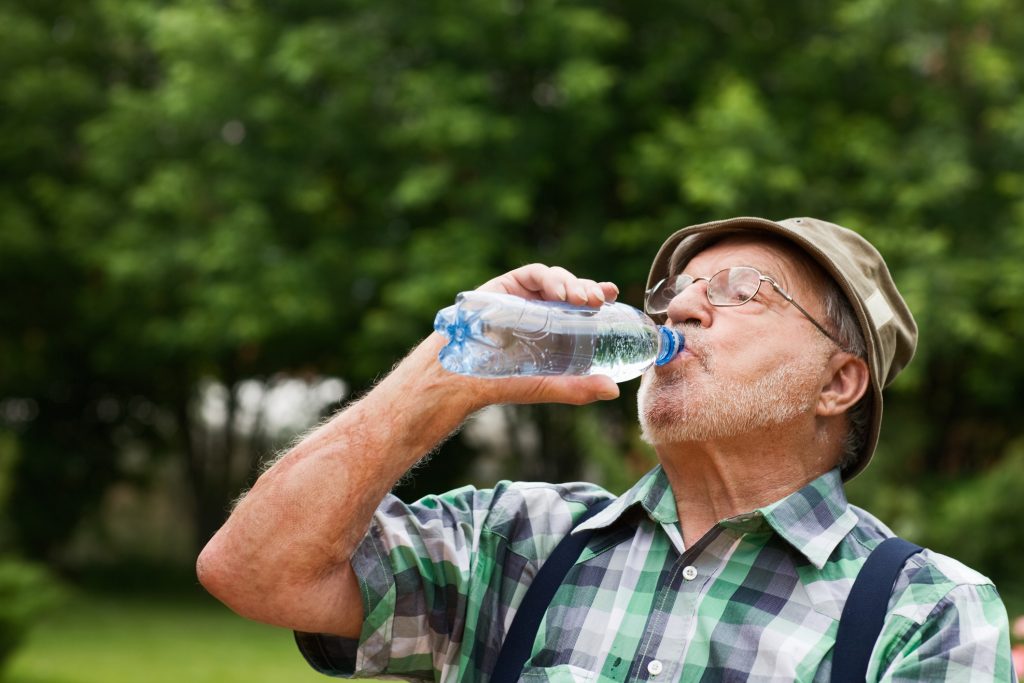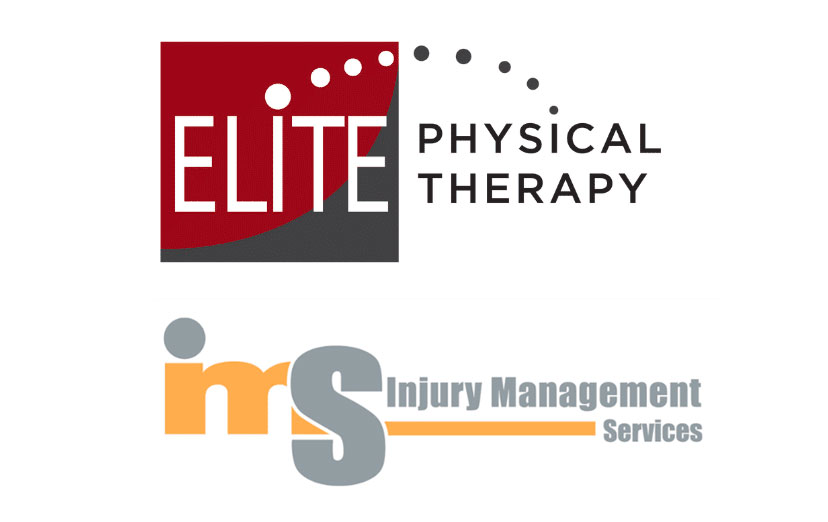By: Sandie Flynn Buller
The end of summer in Louisiana means some of the hottest temps we will see all year. Even if the gauge doesn’t read 100-degrees, it still feels that way. Your thermometer may read 88° F, but if the relative humidity is 75 percent, it will feel like a sizzling 103° F. When it feels like 103° F, your body is working on overdrive to cool you down and maintain an ideal body temperature of around 98.6° F, which can quickly dehydrate you.
Our body produces sweat to help keep us cool, but that only works if the sweat evaporates, because evaporation is a cooling process. So when the relative humidity of the air is high, the sweat evaporation process slows down and can cause us to become dehydrated quicker. Severe loss of water, salt, and minerals can leave you overheated and struggling to maintain normal body functions. Muscle cramps, headaches, light-headedness, dizziness, increased heart rate, and fatigue are all early signs of heat exhaustion or dehydration. During this extreme heat and humidity, it is especially important for physical therapy patients, athletes and everyday folks to stay hydrated for safety. Water regulates your body temperature as well as lubricates your joints. It helps transport nutrients to give you energy and keep you healthy.
What is Dehydration?
Thirst isn’t always a reliable early indicator of the body’s need for water. Many people, particularly older adults, don’t feel thirsty until they’re already dehydrated. Dehydration is commonly defined as a harmful reduction in the amount of water in the body, specifically in your cells and blood vessels. Even losing a little bit, as little as 1.5% of your body’s water, can cause symptoms and affect normal bodily functions. Dehydration doesn’t just affect you when you are outside sweating, or when playing working in the sun all day. Dehydration can affect you just as easily when going through your normal daily activities when there is extreme heat.
Do You Know the Symptoms of Being Dehydrated?
The symptoms that we experience during dehydration can vary depending on the person but there are some common offenders that most of us experience including a headache, dry skin, darker or yellower colored urine, and dry mouth.
Some other common signs and symptoms include the following:
- Dry mouth
- Headaches
- Increased thirst
- A low volume of urine with a darker yellow color than normal
- Tiredness, fatigue or sleepiness
- Dry skin
- Dizziness, weakness, light-headedness
- Muscle cramping
Lesser-known signs of dehydration include:
- Delirium and confusion
- Dry cough
- High heart rate but low blood pressure.
- Loss of appetite but maybe craving sugar.
- Flushed (red) skin. Swollen feet.
- Heat intolerance, or chills.
- Constipation.
How Much Water Should You Drink Every Day to Stay Hydrated?
The best way to beat dehydration is to drink before you get thirsty. Our body has a built-in thirst regulator called the hypothalamus that kicks in when it feels the body’s water levels are becoming too low. It will tell us we are thirsty and need to drink something. You might think, ‘great, I will simply drink when I’m thirsty and I will be ok.’ But, that isn’t exactly the case. If you wait until after you’re thirsty, you’re already dehydrated.
To keep your body hydrated, how much water should you drink each day? The answer to this can and will vary with almost every individual. Activity, size, environment, age, medications, and type of fluids can all affect the answer to how much fluid you need to take in a day. Most physicians say you need 8 to10 glasses of water per day.
Of course, that leads to the next question. How big of a glass? Well, most water glasses are about eight ounces. So, eight, eight-ounce glasses of water equate to 64 ounces a day. That’s about two Big Gulp Cups from your local convenience store full of water.
Other common questions include:
- How does my age, shape and size affect what I need?
- What if I sweat a lot?
- What if I take diuretics?
- What if I work out a lot?
One rule of thumb you can use is: drink half your weight in ounces of water a day. If you weigh 100 pounds then, most likely, 50 ounces of water a day is enough. If you weigh 160 pounds, then 80 ounces is probably enough. However, if you are drinking caffeinated beverages, exercising, or working outside, you will not be getting the hydration necessary to function. Caffeine is a diuretic, which means you will basically counteract whatever hydrating fluids you drink. When having physical therapy, exercising or working outside, you need to increase the amount of water you consume to counteract what you lose from sweating and raising your body temperature. Even then, no answer will be perfect for everyone, it is best to consult your family doctor to get a good idea for your personal health requirements.
How To Tell If You Are Dehydrated: The Skin Test
By pinching the skin on the top or backside of your hand you can easily check whether you should be drinking more water. If your skin bounces back to a quick, smooth position then you are less likely dehydrated. If your skin slowly goes back flat to your hand and leaves a crease for a few seconds, then it’s probably time to find some water.
People often say they drink water consistently all through the day, but many would be surprised to find out they are not as hydrated as they think. However, if you are only taking sips of water all day, then you are hardly getting enough fluid. A hydration tip is to try drinking out of something measurable, such as a 32-ounce water bottle, and see if you can drink two of these in a day. Many people will find out that they have been drinking way less than they thought! Dehydration can sneak up on many of us. Pay attention to this heat and the amount you drink daily!
We hope this information on dehydration helps you stay active and healthy as we all beat this end of summer heat!
If you’re experiencing a pain that is keeping you from being active, we can help. Schedule an appointment with us at Elite Physical Therapy today!




